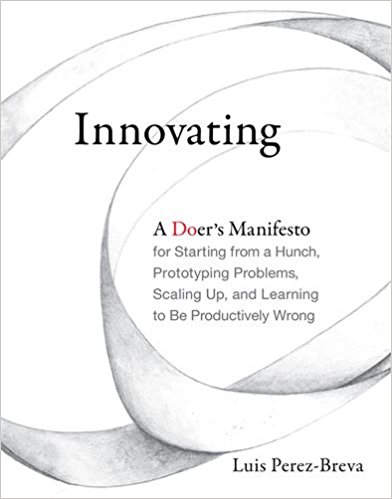This week, we speak with entrepreneur and professor Luis Perez-Breva, who directs MIT’s Innovation Teams Program. He is the author of “Innovating: A Doer’s Manifesto for Starting From a Hunch, Prototyping Problems, Scaling Up, and Learning to Be Productively Wrong.”
He is an entrepreneur who has taught innovation as a skill to professionals and students worldwide, co-led the Innovation Pillar of the MIT Skoltech Initiative, and collaborates with MIT’s innovation initiatives in Portugal, Singapore and the United Arab Emirates.
He helped to create “mobile enhanced E911” — the mobile location technology for 911 emergency calls made from cellphones. Instead of using an older proposed solution (cell tower triangulation), Breva applied Artificial Intelligence to create a more accurate and reliable technology for police and emergency responders.
Breva says “nearly all ideas are born bad.” What most people have at the beginning is not really an idea, but more like a sense that there’s something broken. The challenge is to scale up a hunch about solving a problem into something that exists and works in the real world.
“Being productively wrong” is how we should approach the evolution of ideas. The key to turning hunches into successful ideas though the iterative process.
You can stream/download the full conversation, including the podcast extras on iTunes, Bloomberg, Overcast, and Soundcloud. Our earlier podcasts can all be found on iTunes, Soundcloud, Overcast and Bloomberg.
Luis Perez-Breva’s book
Innovating: A Doer’s Manifesto for Starting from a Hunch, Prototyping Problems, Scaling Up, and Learning to Be Productively Wrong by Luis Perez-Breva

Luis Perez-Breva Favorite Books
The Structure of Scientific Revolutions by Thomas S. Kuhn

The Hitchhiker’s Guide to the Galaxy by Douglas Adams

The Martian by Andy Weir

What If?: Serious Scientific Answers to Absurd Hypothetical Questions by Randall Munroe


